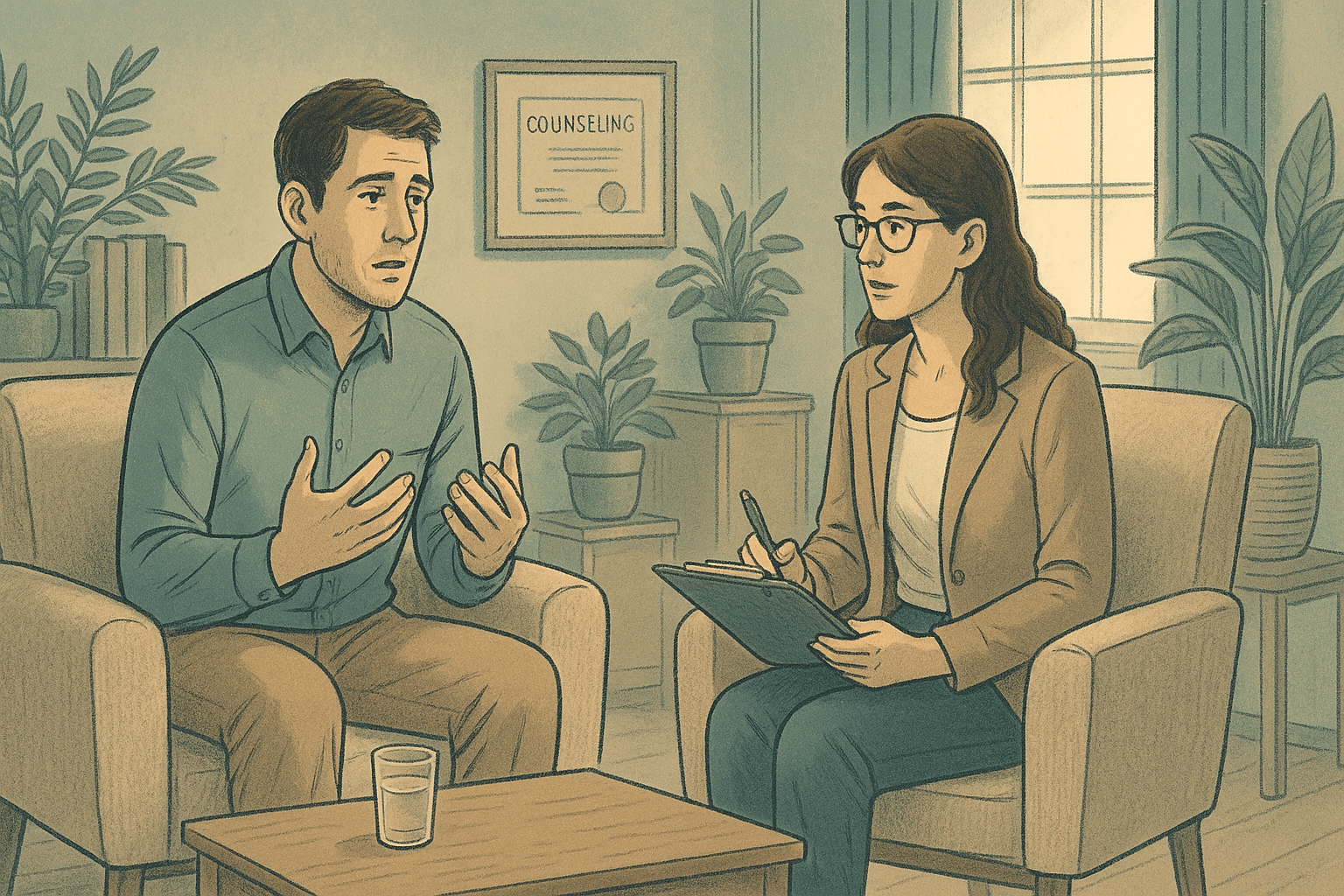
Key Takeaways
- Life insurance typically includes a suicide clause, which may restrict coverage if the policyholder dies by suicide within the first two years (contestability period).
- After the contestability period expires, most policies will cover suicide death benefits, provided there was no misrepresentation in the application.
- Full disclosure of mental health history during the application process is crucial to prevent claim denials.
- If a suicide occurs during the contestability period, some policies may return premiums paid rather than the full death benefit.
- Mission Connection Healthcare offers compassionate treatment options that can help reduce suicidal thoughts and provide essential mental health support before a crisis occurs.
Initial Policy Period Exclusions
When you first obtain a life insurance policy, initial exclusions might apply. These exclusions often include a suicide clause, which is a standard feature in many life insurance contracts. The suicide clause is designed to protect insurance companies from individuals who might purchase a policy with the intent to commit suicide shortly thereafter.
Understanding the Suicide Clause
The suicide clause is a specific condition within most life insurance policies that excludes coverage if the policyholder dies by suicide within the contestability period. This clause is a safeguard for insurers, preventing immediate financial gain from the policy in such tragic circumstances. After this period, if all other conditions of the policy are met, a claim for suicide may be honored.
Defining the Contestability Period
The contestability period is a critical concept in life insurance. It usually lasts for the first two years of the policy. During this time, the insurance company has the right to review and potentially deny claims if they find any evidence of misrepresentation or non-disclosure of relevant information. For example, if a policyholder failed to disclose a significant mental health condition, the insurer might deny a claim based on that omission.
Conditions for Returning Premiums
In the unfortunate event that a policyholder dies by suicide within the contestability period, the insurance company might not pay out the death benefit. However, some policies provide a return of premiums paid. This means that instead of receiving the full death benefit, the beneficiaries may receive the amount paid in premiums up to that point.
Understanding these initial exclusions and conditions can significantly impact the decision-making process for both purchasing a policy and planning for the future.
| Mission Connection: Outpatient Mental Health Support Mission Connection offers flexible outpatient care for adults needing more than weekly therapy. Our in-person and telehealth programs include individual, group, and experiential therapy, along with psychiatric care and medication management. We treat anxiety, depression, trauma, and bipolar disorder using evidence-based approaches like CBT, DBT, mindfulness, and trauma-focused therapies. Designed to fit into daily life, our services provide consistent support without requiring residential care. Start your recovery journey with Mission Connection today! |
Factors Influencing Suicide Coverage Decisions
Role of Mental Health History

When applying for life insurance, be transparent about any mental health conditions. Insurers use this information to assess the level of risk and to determine the terms of the policy. If a policyholder’s mental health history is not fully disclosed, it can lead to complications or even denial of a claim if the death is related to an undisclosed condition.
Insurer Investigations on Claims
When a claim is filed, especially in the case of a death by suicide, insurers often conduct thorough investigations. These investigations aim to verify the circumstances surrounding the death and to ensure that all policy terms were met.
During an investigation, the insurer may review medical records, interview witnesses, and examine any other relevant documentation. This process can be lengthy and detailed, which is why having all necessary documentation ready and accessible can facilitate a smoother claims process.
Legal and Regulatory Considerations
Different jurisdictions have varying rules regarding life insurance claims, and these can influence the outcome of a claim. For example, some states have specific laws that protect beneficiaries in cases of suicide after the contestability period.
Be aware of these regulations and how they might impact your policy or consult with a legal expert who can provide clarity on these matters.
Steps for Policyholders
Consulting with Insurance Agents

An insurance agent can provide valuable insights into the specifics of your policy and help you understand any exclusions or conditions that may apply.
During these consultations, ask questions about the suicide clause, the contestability period, and any other terms that might affect your coverage. An informed policyholder is better equipped to make decisions that protect their interests and those of their beneficiaries.
Clarifying Policy Details
Thoroughly review your policy documents and ensure you understand all terms and conditions. Pay special attention to any clauses related to suicide, mental health, and the contestability period.
If any part of your policy is unclear, don’t hesitate to seek clarification from your insurer or agent. Clear communication can prevent misunderstandings and ensure that you know exactly what your policy covers.
Proactive Mental Health Support
Maintaining mental health is crucial for overall well-being and can also impact your life insurance coverage. If you or someone you know is struggling with mental health issues, seeking support can make a significant difference.
Many organizations offer mental health resources and support services. Utilizing these can help manage mental health conditions and may also provide documentation that can support a life insurance claim if needed.
Support Resources for Families
In the event of a policyholder’s death, especially by suicide, families often need both emotional and financial support. Accessing these resources can provide much-needed assistance during a difficult time.
Emotional and Financial Guidance
Dealing with the aftermath of a loved one’s death by suicide is incredibly challenging, both emotionally and financially. Know that you’re not alone and there are resources available to help you through this difficult time.

Many counselors specialize in dealing with the unique challenges that arise from losing someone to suicide. Financial advisors can also assist in managing any complexities related to the life insurance claim, ensuring you understand all aspects of the policy and any potential payouts.
Additionally, connecting with others who have experienced similar losses can be incredibly healing. Group therapy involves a community of individuals who understand what you’re going through and can provide comfort and advice.
Utilizing Community Support Networks
Community support networks can be an invaluable resource for families dealing with the loss of a loved one. These networks often include local organizations, churches, and community centers that offer various forms of support, from counseling services to financial assistance programs.
Engaging with these networks can help you find the support you need to manage the challenges ahead. Whether it’s attending support group meetings, accessing financial aid programs, or participating in community events, these resources can provide a sense of connection and support during a difficult time.
Finding Hope with Mission Connection
Understanding life insurance coverage for suicide is important, but preventing such tragedies through proper mental health support is essential. While most policies will cover suicide after the initial contestability period, the real focus should be on getting help before reaching a crisis point.

Our compassionate outpatient and telehealth services provide evidence-based treatment options specifically designed to reduce suicidal ideation and build sustainable mental wellness.
If you or someone you love is experiencing suicidal thoughts, don’t wait for a crisis reach out today. Our team of mental health professionals in California, Virginia, and Washington are ready to create a personalized treatment plan to help you regain hope and stability.
Contact Mission Connection Healthcare to begin your journey toward mental wellness and a life worth living.
Frequently Asked Questions (FAQs)
What is the suicide clause in life insurance?
The suicide clause is a provision in most life insurance policies that excludes coverage if the policyholder dies by suicide within a specified period, typically the first two years of the policy. This clause is designed to prevent individuals from purchasing a policy with the intent to commit suicide shortly thereafter.
How long is the contestability period?
The contestability period is usually two years from the start of the policy. During this time, the insurer can investigate and potentially deny claims if they find evidence of misrepresentation or non-disclosure of relevant information. After this period, the policy becomes incontestable, provided there was no fraud involved.
Will mental health affect my claim?
Mental health can impact a life insurance claim, particularly if there was a failure to disclose a mental health condition during the application process. Full disclosure is crucial to ensure that claims are not denied due to non-disclosure of pertinent information. Be transparent about any mental health history when applying for a policy.
Can a policy be contested after two years?
Generally, after the two-year contestability period, a life insurance policy becomes incontestable. This means that the insurer cannot deny a claim based on misrepresentation or non-disclosure, unless there was fraud involved. However, review your specific policy terms to understand any exceptions that may apply.
What mental health services does Mission Connection offer?
Mission Connection Healthcare provides various mental health services including medication management, telehealth options, and outpatient therapy using evidence-based treatment modalities. These services are designed to support individuals experiencing suicidal thoughts and other mental health challenges.








